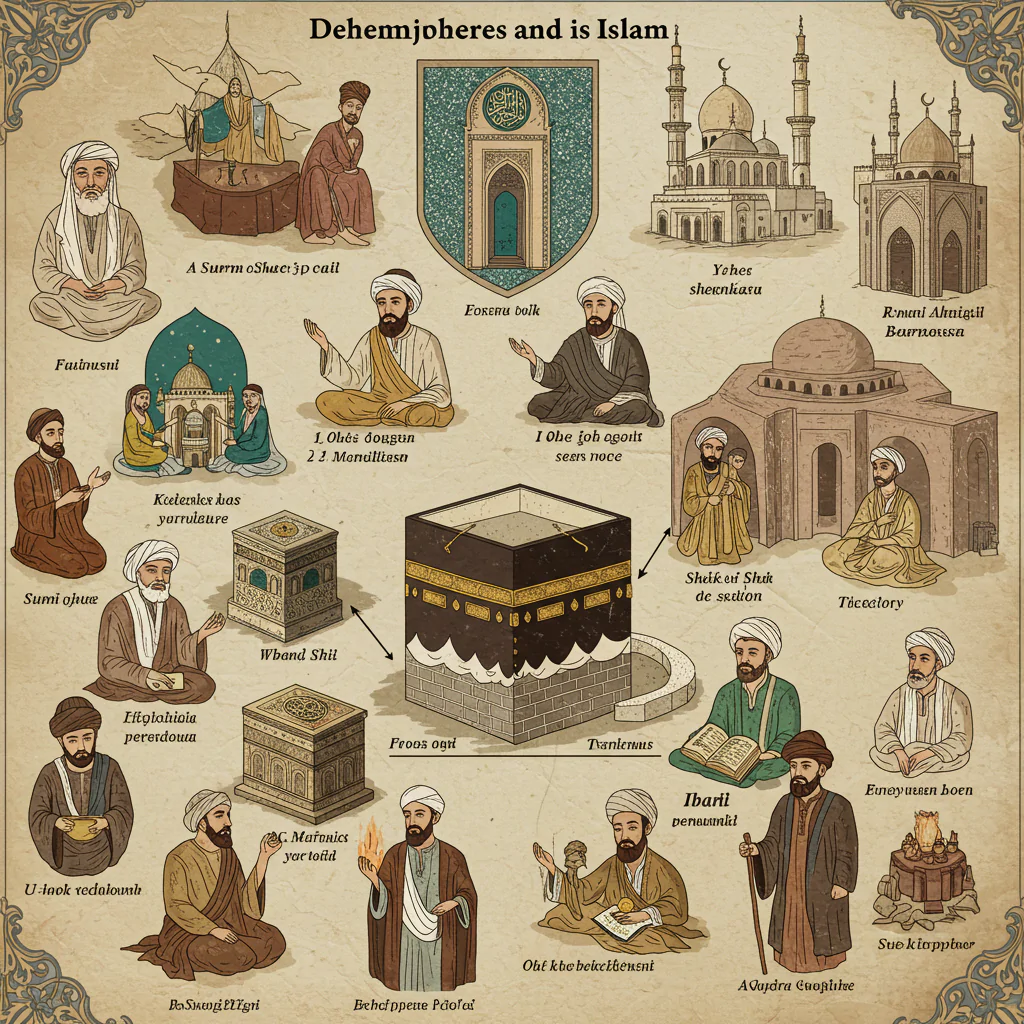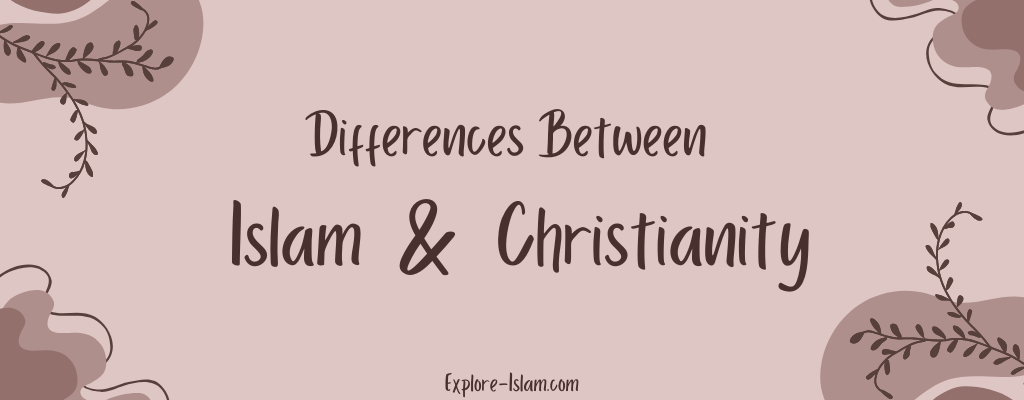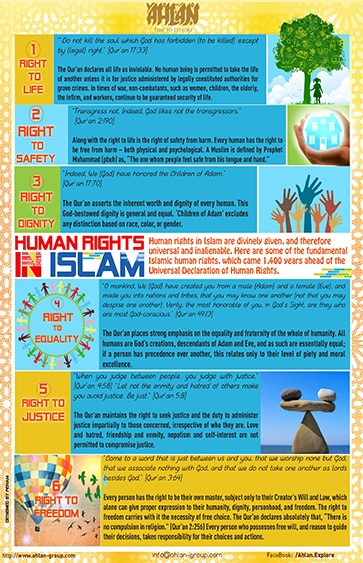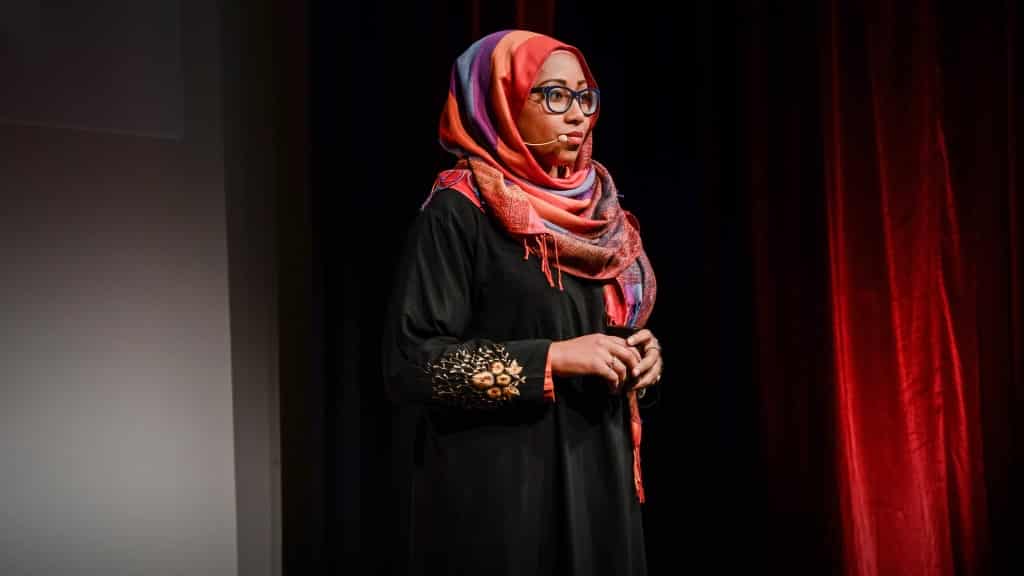In a nutshell: Islam consists of several major denominations, primarily Sunni and Shia, each with distinct beliefs. Sunnis follow the Prophet Muhammad’s companions and emphasize the Sunnah, while Shias focus on the Prophet’s family, particularly Ali (RA). Other smaller groups include the Al-Mu’tazilah and Khawarij. These divisions stem from differences in leadership, theology, and interpretation of Islamic law. Despite these branches, all share core beliefs in the Quran and Sunnah, uniting Muslims under the common foundation of faith.
Islam has major denominations and branches. Dividing Muslims into many sects and denominations is not among the Islamic objectives. Although this division is not from Islam, it is a reality nowadays.
Here, we will discuss the major denominations of Islam and the major branches of Islam. We will also know why there are so many branches of Islam, and what was the main difference between the Sunni and shi’a branches of Islam.
Major Denominations of Islam
Denomination refers to a religious group with slightly different beliefs from others sharing the same religion. Muslims are divided nowadays into Sunnis, Shias, Al-Mu’tazilah and Khawarij. Anyone of these three groups is not deemed as a Muslim if he adopts beliefs and thoughts against the core of Islam.
“Indeed, you ˹O Prophet˺ are not responsible whatsoever for those who have divided their faith and split into sects. Their judgment rests only with Allah. And He will inform them of what they used to do.”
1. Sunnis Denomination
Sunnis are Muslims who follow the Prophet Muhammad (ﷺ) and all his companions and those who follow them till the Hereafter. One of the meanings of Sunnah is to obey without following one’s whim. Sunnah is also determined through transmission, not through reason-based evidence. Let’s know more about the term Ahlussunnah, its beginning and its meanings.
a. First one to use the term Ahlussunnah
The word of Ahlussunnah (people of Sunnah) first appeared during the prophetic era as it was used by Ibn ‘Abbas, one of the Prophet’s companions, in his Quranic interpretation.
b. The usage of the term Ahlussunnah
The term Ahlussunnah referred at the beginning to all Muslims other than Ar-Rafidah (Ar-Rafidah is derived from the Arabic word “Rafad” (رفض) which means to refuse. This name comes after the Shia rejected the opinion of Zaid ibn ‘Ali (RA) when he refused to deny the caliphate of Abu Bakr and ‘Umar (May Allah be pleased with them).
It also refers to people who follow Islam without adding bad innovations to their religious practices and beliefs. Thus, it excludes all sects following innovations, whims and desires like khawarij, Murji’as, Al-Jahmiah and Shias.
2. Shias Denomination
A religious movement adopting a different political view regarding the rightful successor of the Prophet Muhammad (ﷺ) emerged. Let’s know the story of their beginning, their hostility towards Sunni Muslims, their concept of saints and their doctrine of the Imamate.
a. The Story of Shias
It was a minority called As-Sab’iyyah led by ‘Abdullah ibn Saba’, a Jewish Yemeni who pretended to be a Muslim. The death of ‘Uthman ibn ‘Affan (RA) was the peak of this division in the Muslim community because of politics.
This group turned from a peaceful opposition to an armed one to achieve their religious goal which was to return the caliphate to one of the rightful successors according to their belief.
b. Their Hostility towards Sunni Muslims
Shias are twelve sects. All of them are innovators. Sunni scholars consider some of them deviated while others are not. The most dangerous sect according to some Sunni Scholars are Ar-Rafidah, An-Nusayriah, Al-Ismai’iliyyah and Al-Batiniah.
Some of Shias who aim to harm Muslims and shed their blood all over the world are deemed as infidels. What happened in Syria and the Levant all over the last fifty years proves their corruption and hostility not towards Muslims only but towards humanity.
c. Their Concept of Saints
They believe that their scholars are infallible saints who can foresee the future. For some of them, they are better than Prophets and Angels. Some of them also associate others with Allah Almighty.
d. Their Doctrine of the Imamate
The Shias basically emphasize the family/progeny of the Prophet Muhammad (ﷺ), who is referred to as the Ahl ul-Bayt. As a result, they believe the Prophet’s (ﷺ) son in law ‘Ali was the rightful successor. They regard this matter as the core of religion and not just a minor issue and refuse the concept of Shura and consensus. In fact, this doctrine has a political roots and cannot be considered as religious as they claim.
Some of the Shia also believe that the caliphate of Abu Bakr, ‘Umar and ‘Uthman, the successors of the Prophet Muhammad (ﷺ), (may Allah be pleased with them all) is invalid.
They believe that ‘Ali ibn Abi Talib is the only successor of the Prophet Muhammad (ﷺ). Some of them give ‘Ali a higher rank by considering him a saint, a prophet and even a god!
3. Al-Mu’tazilah and Khawarij Denomination
Al-Mu’tazilah (literally in Arabic “those who forsook the group”) adopts different beliefs by misinterpreting the exact Islamic beliefs based on their false and deviated reasoning and whims. On the other hand, Khawarij is a cult founded during the Prophetic era they see that it is permissible to rebel against Muslim rulers. Here, some bried account on their principle beliefs.
Al-Mu’tazilah
Al-Mu’tazilah follows five false principle beliefs, as they misinterpret some core principles in Islam such as monotheism, the concept of justice, ranks of people, the concept of rejoining good and forbidding evil and the fate of the major sinner in the Hereafter.
1. Monotheism (Tawheed)
The misinterpretation of the monotheism or Divine unity for Al-Mu’tazilah makes them deny the Attributes of Allaah. For them, affirming many Attributes for Allah means affirming many different gods. For example, they believe that the Quran is not the Speech of Allah, denying one of the Attributes of Allah.I invite you to read about the story of Imam Ahmad ibn Hanbal and Al-Mu’tazilah during the caliphate of Al-Ma’moun.
2. The Concept of Justice
They misinterpret this concept, as it means for them denying the divine decree (Qadar) which is one of the pillars of Imaan (faith). Believing that Allah is the Just, they claim that writing everything before happening is tyranny and oppression upon His servants so it is impossible.
3. Ranks of People (The Station Between the Two Stations).
For them, any Muslim who commits a major sin and still alive is on a station between the two stations of disbelief and belief.
4. Rejoining good and Forbidding Evil
This concept makes them rebell against the Muslim rulers if he commit a sin even he is not deemed as an infidel. However, this idea of rebellion has nothing to do with the maaner of rejoining good but it is evil itself.
5.The Fate of the Major Sinner in the Hereafter
They believe that Allah Almighty rewards the pious and punishes the sinner but does not forgive those who commit major sins. Thus, when a major sinner die, he will remain in the Hellfire forever.This is because they believe that enforcing the textual threats is enivtable.
Khawarij
Khawarij regard anyone who opposes them as an infidel. They believe that anyone who commits sin is not a sinner but infide! They also deny the authenticity of Sunnah, as Sunnah for them is not a source of legislation. Seeing others as infidels, they give themselves a right to steal and kill. That’s why they encourage armed coups.
Major Branches of Islam of the Islamic jurisprudence
There are eight (7) major branches of Islamic jurisprudence. Sunnis has four (4) schools of thought (Madhaheb); Hanafi, Maliki, Shafi’i and Hanbali. These prominent schools of thought are named after their founders. Shia has four (3) schools of thought; Al-Ja’fariah, Az-Zaydiah, and Adh-Dhahiriah.
It is worth noting that the first four sunni schools are the accepted schools for Muslims to follow in performing their worshipping acts and all their life affairs. Mentioning other schools affiliated to Shia does not mean that they are right and it is accepted to follow their ritual practices and doctrines.
Why There Are So Many Branches of Islam?
There are many branches of Islam for many reasons. Human beings have many differences regarding their cultures, nature, country, age and time. Thus, it is a mercy for humans to find so many branches. It also proves the universality of this religion. If the branch is based on the Quran and Sunnah, it is accepted. That’s why we are talking about the Sunni branches only. Let’s know what to follow and let’s understand the role of Muslim scholars.
1. What to follow?
We Muslims do not blindly follow a scholar. We follow the Quran and Sunnah through the guidance of this scholar who should be pious, knowledgeable and well-versed in some sciences. All Muslim scholars have stressed the importance of following the Quran and sound Sunnah and advised Muslims to leave any opinion that contradicts them. The sayings of every human being can be accepted or rejected except the sayings of the Prophet Muhammad (ﷺ) who is infallible.
The Prophet (ﷺ) said, “I advise you to fear Allah, listen, and obey, even if an Abyssinian slave is put in charge of you. Whoever lives after me will see many conflicts. You must adhere to my Sunnah and the Sunnah of the righteous, guided successors. Hold firmly to it as if biting with your molar teeth. Beware of newly invented matters in religion, for every new matter is an innovation and, every innovation is misguidance.”
[Sunan Abī Dāwūd 4607]
2. The Role of Muslim Scholars
Claiming that Imams Abu Haneefah, Ash-Shafi’i, Malik, Ahmad Ibn Hanbal and others split the Muslim nation is a great injustice. They united the Muslim nation in knowledge and correct guidance by issuing the correct verdict based on their personal opinion regarding contemporary matters.
What Was the Main Difference Between the Sunni and Shia Branches of Islam?
A Muslim is a person who submits to the Almighty God. Anyone who witnesses that Allah is One and Muhammad is His messenger is a Muslim. there is no sects in Islam. We will compare between Sunnis and Shias in terms of theology (‘Aqeedah) and Islamic jurisprudence (Fiqh).
1. Theology Differences
For some sects, faith is only utterance without actions. Others, like Al-jahmiah, said that faith is the knowledge itself without the need for any verbal utterance or action. While Sunnis believe that faith is declared through knowledge, verbal utterances and actions.
A. Attributes of Allah Almighty Differences
Sunnis refer all the attributes of perfection to Allah Almighty following definite evidence from the Quran and Sunnah. Some sects deny some of these attributes. For example, Al-Mu’tazilah denies one of the Attributes of Allah; the Speech of Allah and the divinity of the Quran by believing that the Quran was created.
B. Ten Beliefs Differences
The Sunnah is ten. Whosoever accepts them has completed the Sunnah and whoever abandons anything from them, has abandoned the Sunnah.
(1) affirming al-Qadr (predestination ) ,
(2) giving precedence to Abu Bakr and ‘Umar,
(3) the Pond in Paradise,
(4) Shafa’ah (Intercession),
(5) the Scales,
(6) the Bridge over Hellfire (As-Siraat),
(7) belief in statement and action,
(8) the Quran is the speech of Allaah,
(9) Punishment in the Grave,
(10) being raised up on the Day of Judgement and not testifying that any Muslim will definitely be in Paradise or Hell- be pleased with them all-and the beliefs they held concerning the fundamentals of the deen and their Aqeedah in the Lord of the worlds.” Up until when he said: “We have faith in the Angel of Death who is charged with taking the souls of all the worlds; and in the ‘Punishment of the Grave for those who deserve it.
Sufyan ibn ‘Uyainah (d.197H) (RA)
2. Islamic Jurisprudence Differences
Hanafi, Maliki, Shafi’i and Hanbali are the four prominent schools of thought of Sunnis, while Al-Ja’fariah, Az-Zaydiah and Adh-Dhahiriah are among the schools of thought of Shias.
3. Political Differences
The Shias regard the doctrine of imamate as the core of religion. It is not just a minor issue for them as they refuse the concept of Shura and consensus. This doctrine has a political roots and cannot be considered as religious as they claim.
Who is the best?
The best one is the one who moves from darkness to light by strictly following the Quran and Sunnah and avoiding blind imitation. The best one is the one who benefits from the knowledge he acquires. The best one is the one who gathers Muslims under one flag, following Allah’s command:
“And hold firmly together to the rope of Allah and do not be divided…”
To know who is the best, let’s discuss the qualities of a true Muslim and the uprightness of the Muslim community.
1. A True Muslim
The core of the Islamic message is found in the Quran and Sunnah and can be seen in the actions of true Muslims. Thus, One cannot judge Islam through individuals who are called Muslims but they are not behaving as Muslims. The word “Muslim” linguistically means in Arabic the one who submits to the will of God by testifying that “There is no one worthy of worship except Allah and Muhammad is the Final Apostle of God.”
2. The Uprightness of the Muslim Community
Sunnis choose the moderate path in theology and other religious matters.
“And so We have made you ˹believers˺ an upright community”
It is moderate, balanced, and outstanding. Its community is the best, the most just and the most righteous. The opposite of all these adjectives are extremism, transgressions of the divine limits and negligence. They follow the correct path following the Quran, the sound Sunnah and the authentic consensus.
“O People of the Book! Do not go to extremes regarding your faith”
Conclusion
We have to deal with the reality of having denominations and branches and understand the nature of this division. We should also know that truth is one and that differences among people is inevitable. Our shelter and rescue is by strictly following the Quran and Sunnah.
“Had your Lord so willed, He would have certainly made humanity one single community ˹of believers˺, but they will always ˹choose to˺ differ—”
After discussing The major denominations of Islam, the major branches of Islam, and the main difference between the Sunni and Shia branches of Islam, I invite you to visit this link to learn more about Islam.
















